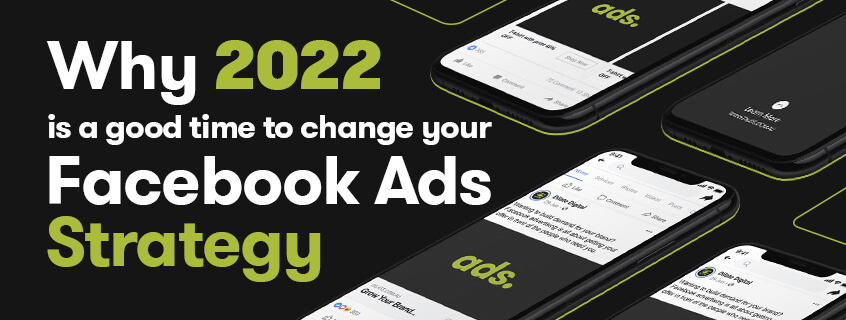

Change is unavoidable, especially when it comes to the digital marketing space. If you advertise with Facebook or Instagram, chances are you’ve noticed a decline in the performance of your ads over the past months. Due to a recent series of shifts relating to data privacy, advertising with Facebook ads isn’t the same as it used to be.
One of the biggest growing pains for Facebook is the iOS14 update from Apple. Launched in 2021, the iOS14 update put big limits on what advertisers can track and what information is accessible from users on Apple devices. These changes are still proving troublesome for advertisers on Facebook.
The good news is, that there are already solutions and workarounds being implemented. These can help advertisers continue to get profitable results on the Facebook platform. Having a flexible approach to your Facebook Ads strategy will make your business more resilient in the coming years as major changes continue to roll out.
In this article, we’ll walk you through the iOS14 update, what it means for Facebook advertising. And how you can adapt your Facebook Advertising strategy in 2022.
what our clients are saying
create business. better everyday.
Let's Talklearn from the best minds in the business
Bodie provides some insight into Dilate's internal operations. How we approach what we do, and how we strive to be Better Everyday.





